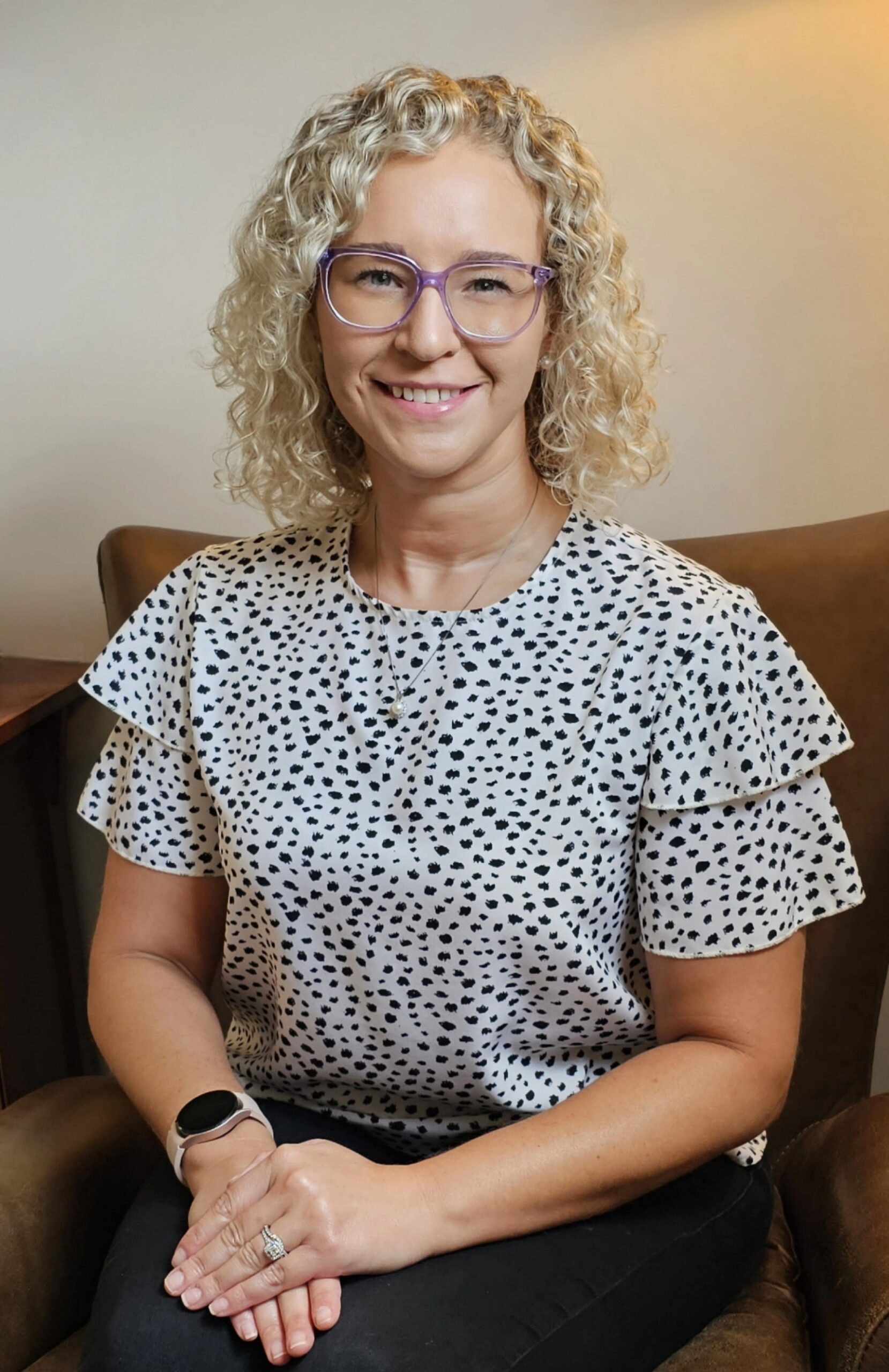
Teletherapy for Samford University Students
At Taproot Therapy Collective, we understand the unique mental health challenges that Samford University students face. Our specialized teletherapy services make quality mental health care accessible to the Samford community, with flexible scheduling and evidence-based treatment approaches.
The Unique Mental Health Needs of Samford University Students
College students face distinctive challenges that can significantly impact their mental well-being. At Samford University, these challenges are shaped by the specific campus culture, academic pressures, and environmental factors. Understanding these unique needs is essential for providing effective mental health support.
Key Mental Health Statistics at Samford University
According to recent surveys and data from Samford University Health Services and Counseling Services:
- Over 30% of Samford students experience symptoms of depression, and many struggle with anxiety
- 25% of students report difficulties accessing enough nutritious food, contributing to stress, anxiety, and poor mental health outcomes
- During the COVID-19 pandemic, students reported increased social isolation, exacerbating issues such as loneliness, anxiety, and depression
- A significant portion of students report high levels of stress due to academic pressure, linked to anxiety and sleep disturbances
- Graduate students report higher rates of burnout and depression compared to undergraduates as they juggle coursework, work, and personal obligations
Factors Affecting Mental Health at Samford University
Academic Pressures
Samford's academic rigor can sometimes exacerbate feelings of stress and anxiety, leading to burnout. The competitive academic environment creates significant pressure, particularly during midterms and finals.
Social Isolation
Particularly for freshmen experiencing a transition into college life without sufficient social support, feelings of isolation can lead to increased anxiety and depression.
Food Insecurity
Over 25% of Samford students report difficulties in accessing enough nutritious food, which significantly impacts mental health and can contribute to stress, anxiety, and poor mental health outcomes.
Graduate Student Challenges
Samford's graduate students often juggle coursework, work, and personal obligations, leading to higher rates of burnout and depression compared to undergraduates.
COVID-19 Impact
The pandemic has exacerbated mental health challenges, with Samford students reporting increased feelings of social isolation, which contributed to higher levels of anxiety and depression.
Financial Stress
Many Samford students experience financial stress that impacts their mental health, adding another layer of anxiety to their academic experience.
Mental Health Resources at Samford University
On-Campus Support Options
Samford University offers several mental health resources for students. While these services are valuable, they may have limitations in terms of appointment availability, session limits, or specialized treatment options. Taproot Therapy Collective complements these services by offering specialized care with no session limits and flexible scheduling.
Counseling Services
Samford's Counseling Services provide both in-person and virtual therapy options. They focus on helping students manage academic stress, personal challenges, and social anxiety.
Visit WebsiteSamford CARES
Samford CARES helps students facing personal or academic challenges. The program connects students with appropriate resources both on and off-campus.
Learn MoreHealth Services
Samford's Health Services offer students access to medical care, preventive health services, and wellness support. They can provide referrals and basic support for mental health concerns.
Explore ServicesHow Taproot Therapy Collective's Teletherapy Serves Samford Students
Advantages of Teletherapy for College Students
Teletherapy offers unique benefits for university students, including flexible scheduling around classes, accessibility from your dorm or apartment, and continuity of care even during semester breaks or when returning to your hometown. Our HIPAA-compliant platform ensures your privacy and confidentiality.
At Taproot Therapy Collective, we understand the unique challenges that Samford University students face. Our teletherapy services are specifically designed to address these challenges with specialized approaches:
Trauma-Informed Teletherapy
Our trauma-informed teletherapy is especially beneficial for Samford students dealing with anxiety, depression, and trauma-related conditions, allowing you to access professional care from the safety and convenience of your dorm room.
Brainspotting and EMDR for Academic Stress
We utilize Brainspotting and EMDR to help students process trauma, stress, and anxiety. These therapies are particularly effective for those dealing with academic stress and personal challenges.
Mindfulness and Somatic Therapies
Our mindfulness-based approaches help students manage anxiety, focusing on grounding techniques and somatic therapies to reduce the physiological symptoms of stress, which are common during exam periods.
Support for Graduate Students
Recognizing that Samford's graduate students have unique stressors, we offer specialized support for burnout, sleep disorders, and career-related stress.
Substance Use Counseling
We provide counseling for students struggling with substance use or addictive behaviors, including individual counseling and relapse prevention strategies.
No Wait Times
Unlike many university counseling centers that may have long wait lists, we can typically schedule your first appointment within a week, ensuring you get help when you need it.
Our Teletherapy Specialists for Samford Students
Finding the Right Therapist
Each of our teletherapy providers brings specialized training in treating issues commonly experienced by college students. Our therapists understand the unique challenges of university life and can provide targeted support for academic stress, anxiety, depression, identity exploration, and relationship challenges.

Pamela Hayes, MSW LMSW
Pamela Hayes is a skilled and compassionate clinical social worker offering teletherapy services to clients across the state of Alabama.
With extensive experience in inpatient psychiatric care, Pamela specializes in supporting adults recovering from complex PTSD, OCD, anxiety, comorbid disorders, depression, chronic pain, and chronic illness. For students with overlapping anxiety and attention difficulties, she offers specialized approaches addressing both anxiety and ADHD symptoms. Her non-pathologizing style blends experiential techniques with evidence-based modalities like Brainspotting and Somatic Experiencing, creating a personalized plan for profound healing and transformative growth.
Book with Pamela
Dr. Haley Beech, PhD MSW LMSW
Dr. Haley Beech is a licensed master social worker (LMSW) who specializes in academic stress, trauma, anxiety, depression, and women's issues on campus.
With a strong focus on treating the whole person, Dr. Beech incorporates somatic and experiential modalities like Brainspotting to help clients navigate through the trauma held in the body and emotions. For students experiencing anxiety and depression, she may discuss both therapeutic approaches and medication options when appropriate. Her compassionate, non-pathologizing approach creates a safe space for deep healing and transformation.
Learn more about Dr. Beech
Becky Milstead, LPC
Becky Milstead is a seasoned therapist with over 20 years of experience helping young adults navigate the challenges of college life, academic stress, and personal growth.
Becky's approach centers around each student's personality and unique needs, creating a safe space for them to be seen and heard. She teaches DBT skills to help students recognize and regulate their emotions. For students with both anxiety and attention issues, Becky offers specialized approaches addressing anxiety and ADHD symptoms together, enabling academic success alongside emotional wellbeing.
Connect with Becky
Marie Danner, LICSW-S MSW CCTP-II
Marie Danner is a seasoned trauma therapist who employs a multi-modal approach to create personalized treatment plans for each client. Her therapeutic toolbox includes:
- Brainspotting
- Lifespan Integration
- Cognitive Behavioral Therapy (CBT)
- Dialectical Behavior Therapy (DBT)
- Attachment-based therapy
Specializing in the treatment of post-traumatic stress disorder (PTSD), complex trauma, and addiction, Marie helps students navigate the depths of their experiences. She is well-versed in recognizing anxiety and depression symptoms common in college settings and offers a compassionate approach that creates a safe space for growth and transformation.
Book a session with Marie
Kristi Wood, LICSW MSW PIP
Kristi Wood develops personalized treatment plans that incorporate cognitive behavioral therapy (CBT), attachment theory, and Internal Family Systems (IFS) therapy. She creates a safe, non-judgmental space for college students to explore their experiences, build upon their strengths, and work towards lasting change.
Kristi is an EMDR and Brainspotting trained therapist with specialties particularly relevant for college students:
Kristi has additional training in EMDR for anxiety and PTSD, and stays current on medication options to provide comprehensive care recommendations.
Book a session with KristiOur Hybrid Approach: Teletherapy and In-Person Options
Flexible Care Model
While many therapeutic approaches can be effectively delivered via teletherapy, some specialized treatments benefit from in-person sessions. Our hybrid model gives you the flexibility to combine convenient online therapy with targeted in-person treatments when needed.
Teletherapy-Compatible Approaches
These evidence-based treatments work excellently in an online format:
- Somatic Therapy - Body-centered approaches that can be guided remotely
- EMDR - Adapted protocols work effectively online
- Brainspotting - Many protocols can be delivered via teletherapy
- Lifespan Integration - Works well in teletherapy format
- Parts-Based Therapy - Fully compatible with online delivery
In-Person Specialized Treatments
These approaches require or benefit significantly from in-person sessions:
- Emotional Transformation Therapy (ETT) - Requires specific light frequencies
- Some forms of Brainspotting with specialized equipment
- QEEG Brain Mapping - Requires specialized equipment
- Neurostimulation - In-office procedure with specialized equipment
For Samford University students, our hybrid approach means you can maintain consistent therapy through teletherapy sessions during the semester, and schedule targeted in-person appointments during breaks or when your schedule allows. This flexibility ensures you receive the most appropriate care for your specific needs without disrupting your academic commitments.
Evidence-Based Treatment Approaches for College Students
Specialized Care for University Life
College students face unique stressors that require targeted therapeutic approaches. Our evidence-based treatments are specifically tailored to address the challenges of university life, from academic pressure to identity formation and social dynamics.
Cognitive Behavioral Therapy (CBT)
CBT is highly effective for managing academic anxiety, perfectionism, and stress. This structured approach helps identify and change negative thought patterns that contribute to anxiety and mood issues commonly experienced during college.
Dialectical Behavior Therapy (DBT)
Dialectical Behavior Therapy combines cognitive techniques with mindfulness practices. DBT is particularly effective for emotional regulation, distress tolerance, and interpersonal effectiveness—essential skills for navigating college social dynamics.
EMDR for Academic Trauma
Eye Movement Desensitization and Reprocessing (EMDR) can be highly effective for treating test anxiety, performance anxiety, and traumatic academic experiences that may be impacting your current academic success.
Brainspotting for Performance Enhancement
Brainspotting can help student-athletes and performers overcome blocks, enhance focus, and process performance-related anxiety in a unique and effective way.
Mindfulness for Academic Focus
Evidence-based mindfulness techniques help improve concentration, reduce procrastination, and manage the overwhelming aspects of college life, leading to better academic outcomes and reduced stress.
Parts-Based Therapy for Identity Development
Parts-Based Therapy is particularly relevant during college years when identity formation and integration are key developmental tasks. This approach helps reconcile different aspects of self during this formative period.
Getting Started with Teletherapy at Taproot
Simple Process, Exceptional Care
We've designed our intake process to be straightforward and student-friendly. Getting started with therapy shouldn't add stress to your already busy schedule.
Step 1: Initial Contact
Reach out through our secure online form or contact our intake coordinator. We'll typically respond within 24-48 hours to schedule your initial consultation.
Step 2: Brief Consultation
Complete a 15-minute phone consultation to discuss your needs and goals. We'll match you with the therapist whose expertise best aligns with your situation.
Step 3: Intake Assessment
Complete our secure online intake forms before your first session. These help your therapist understand your history and current concerns.
Step 4: First Session
Join your first teletherapy session through our secure, HIPAA-compliant platform. All you need is a private space, internet connection, and a device with a camera and microphone.
Insurance and Payment
We accept various insurance plans and offer options for those using out-of-network benefits. We also have reduced fee options for students with financial need.
Scheduling Flexibility
We offer appointments that work around your class schedule, including evening and weekend options to ensure therapy fits into your busy college life.
Connect with a Taproot Therapist Specializing in Student Mental Health
To learn more about our teletherapy services for Samford University students, or to schedule an initial consultation, please contact us today. We look forward to supporting you on your journey through college and beyond.
If you're experiencing symptoms but aren't sure where to start, our guide to recognizing anxiety and depression symptoms can help you better understand what you're experiencing before your first appointment.
Request a Consultation